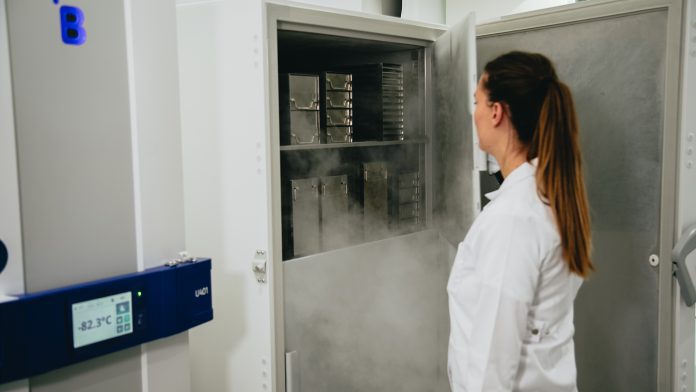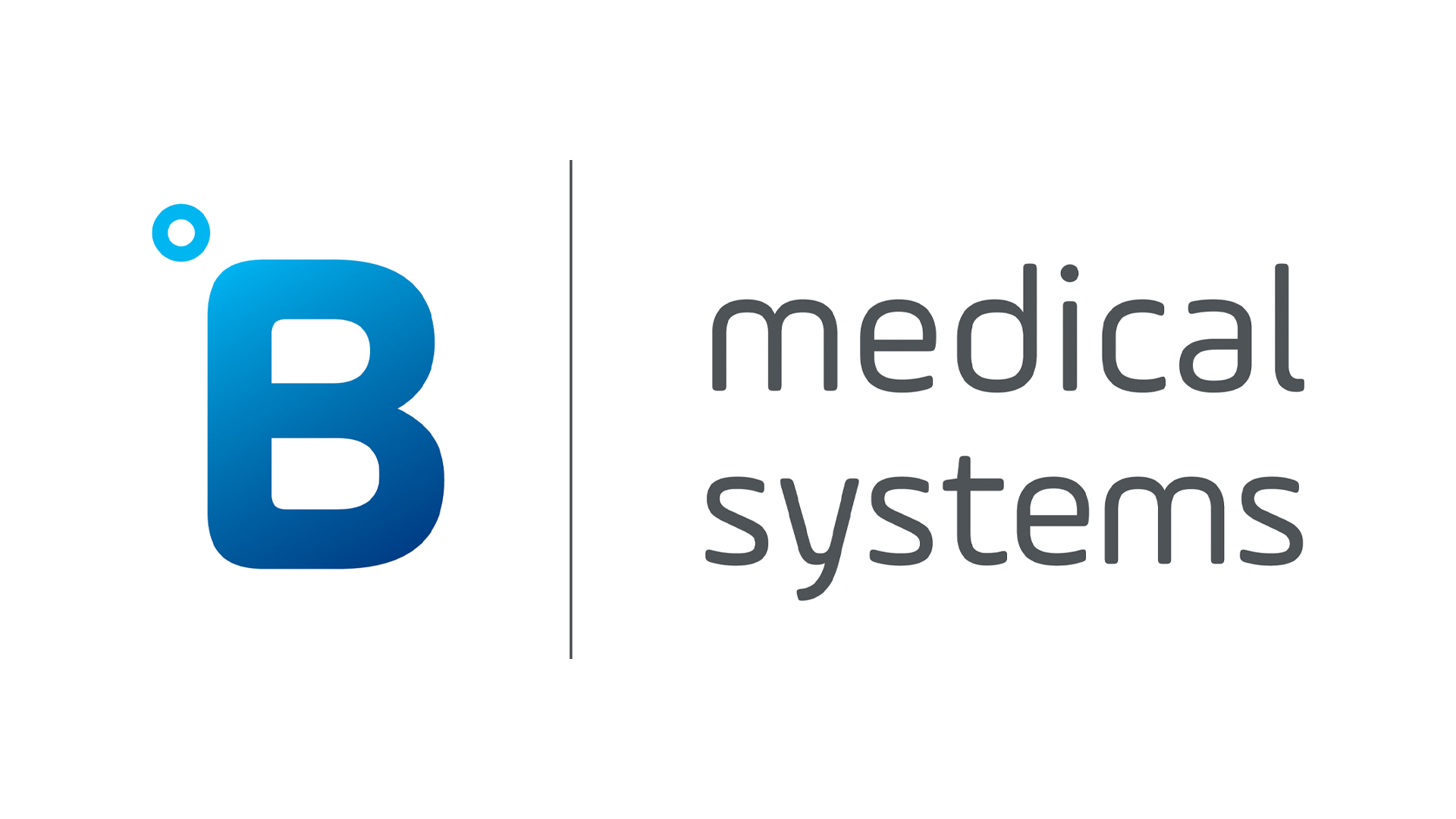
B Medical Systems details the importance of optimal cold chain storage solutions in order to preserve the integrity of cells and other complex samples.
In recent years, several beneficial cell samples and microbial strains have been discovered, engineered, and studied. As a result of these scientific discoveries and other technological breakthroughs, communities all around the world now benefit from a variety of biological products that can protect them or make life easier and more convenient. Examples of these are vaccines, biochemical enzymes, and probiotics.
Microbial strains and cells from tissues are precious biological resources. As a result, effective methods for their preservation are extremely important for their use in research and in various industries. Such methods should not only maintain the cells’ high survival rate but also their genetic stability for an extended period. While ultra-low temperature preservation is highly effective for a wide range of sample types, the process can have an unintended impact if not executed properly. Therefore, to avoid their degradation, special care and effort are required for their storage and maintenance.
During the discovery and research processes of microorganisms, it was of extreme importance to ensure they were stored at correct temperatures to guarantee their safety and quality. This continues to be true today as increasingly more thermosensitive pharmaceutical products derived from such organisms are created. For this reason, Ultra-Low Freezers, or ULTs, are used extensively in research settings to safely store cells, genetic material and more at temperatures as low as -86°C. In fact, by reaching such extreme temperatures, these specialised medical freezers can severely slow down the biochemical pathways of a cell, preserving it for very long times.
However, optimising ultra-low freezing and long-term cold chain storage is as important as the optimisation of the cell culture process in obtaining maximum yield and a consistent end-product, as suboptimal cold chain storage can lead to lowered cellular functionality and reduced cell yield. This requires attention to all aspects of the application of low temperatures: from the choice of freezing containers and cryoprotectants, to the correct handling of the frozen material during storage and transportation, and more. Each of these factors influence all the others to a greater or lesser extent and none should be ignored.
Storing cell samples in Ultra-Low Freezers
Ultra-Low Freezers are medical cold chain solutions commonly used to store clinical and research samples at temperatures reaching down to -86°C for extended periods of time. By severely slowing down metabolic and other biochemical processes in a cell, these freezer units can easily maintain the integrity of cells and other complex samples such as genetic material.
However, the reliability offered by such cooling solutions varies by model and by the way they are utilised. The product must be validated to demonstrate ultra-low temperature uniformity and stability at the set temperature, while security during the cooling cycle must be assured to prevent thermal transients occurring due to unauthorised access to the ULT. A dedicated, validated, temperature-monitored, Ultra-Low Freezer is often the best way to achieve the required level of reliability, safety, and control, although precautions such as cryoprotective agents and proper freezing procedures are necessary to minimise any risk of sample damage during these processes.
Protecting samples from the potentially damaging effects of freezing procedures
While ultra-low temperature storage is highly effective for bacteria, viruses, tissue cells, and subcellular components, it may have unintended negative effects. It is in fact possible that formation of ice within cells, usually caused by excessively rapid cooling, and the rising concentrations of toxic solutes, mainly due to a slow cooling procedure, may in fact cause damage to the samples. However, the addition of a cryoprotective agent to the sample can reduce the possibility of cellular damage due to freezing associated with the cooling process. Cryoprotectants protect the cells by reducing the amount of ice formed at any given temperature by increasing the total concentration of solutes in the system. Nonetheless, to be acceptable for biological use, cryoprotectants must be able to penetrate the target cells and showcase low toxicity and should therefore be tested extensively on some of the cultures that are meant to be stored at ultra-low temperatures. Once it is established that the cryoprotectants can be used safely, ultra-low freezers can be employed for their reliable cold chain storage.
Tailoring storage conditions to cell type
Individual chemical pathways, processes, and reactions respond to ultra-low temperature storage conditions in different ways. As a result, the efficacy of temperature-based suppression of physical and biochemical activity in different types of cells is not universal. Differences in cell responses to cold storage conditions have been attributed to structural differences. For instance, Gram-negative bacteria have a thinner and more fragile cell wall than Gram-positive ones, making the first generally more susceptible to dehydration and cell membrane damage compared to the latter ones. In addition, Gram-positive bacteria have lower cell wall lipid content than Gram-negative bacteria, but their cell walls and peptidoglycan layers are thicker, making them generally more resistant to external physical shocks and more suitable for ultra-low temperature storage.
Because some microorganisms can be more sensitive to temperature changes and could be affected by repeated freeze-thaw cycles, a broken or malfunctioning ULT, power outages, or frequent opening and closing of the freezer doors can be detrimental to them. It is therefore important that, besides tailoring preservation and maintenance techniques to the specific microorganisms, laboratories also pay close attention to deploying reliable medical ultra-low temperature cold chain storage solutions able to reach and maintain such extreme temperatures even during adverse events.
Reliable Ultra-Low Freezers for modern biomedical research
B Medical Systems S.à r.l is a global manufacturer and distributor of innovative medical refrigeration solutions and a global leader in the medical cold chain. With over 40 years of experience, the company continues to innovate the medical refrigeration industry with its products, ensuring that samples, pharmaceuticals, compounds and more have the reliable cold storage environment they require.
The company offers a wide range of Ultra-Low Freezers among its products, varying in storage capacity. The starting model, the U201, with a storage capacity of 206 L is a compact ULT that can be used to store small amounts of samples or pharmaceuticals, while the largest one, the U901, with its 863 L of storage capacity, is perfect for laboratories and universities.
The major feature offered by these ULTs is the flexibility in the operating temperature range as they can reliably store different thermosensitive specimens at temperatures between -86°C and -20°C, effectively allowing these models to also act as a normal medical freezer if required.
Other key features include the advanced cooling system, allowing a constant and even temperature distribution which, along with insulated inner doors, improved gasket seals and the strong insulation, ensures a reliable storage environment for optimal sample safety. Moreover, these products provide a rapid pull down, superior door opening recovery and holdover times, which help guarantee a stable internal temperature during door openings and even adverse events. B Medical Systems’ ULTs also use natural green refrigerants to reduce their environmental impact while increasing their overall cooling efficiency, allowing these units to help reduce the vast energy consumption usually related to these types of products. The company’s ULT models are Class II(a)/Class II medical devices (EU MDR and US FDA), conform to EU F-Gas and US SNAP regulations, and have Energy Star certification on certain models.
These models are renowned worldwide for their safety, quality, reliability, and energy efficiency. B Medical Systems’ products are used all over the world for advanced research in multiple fields including microbiology and gene and cell therapies.
This article is from issue 21 of Health Europa Quarterly. Click here to get your free subscription today.

























